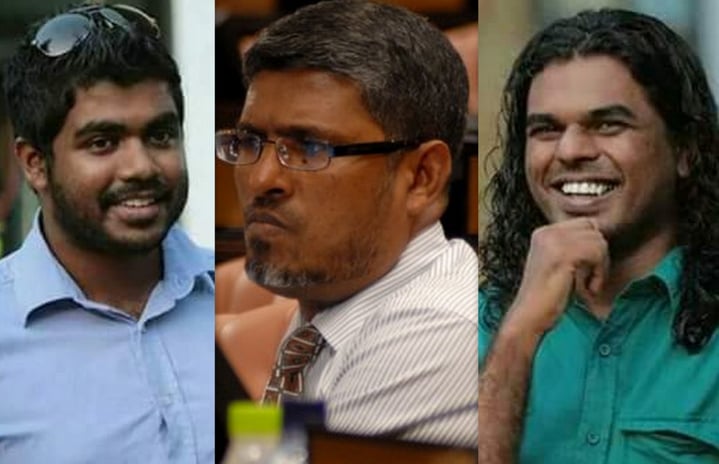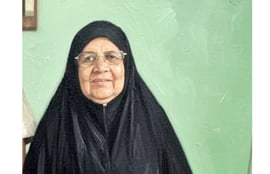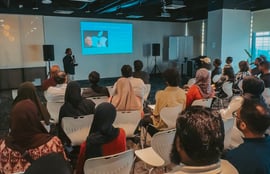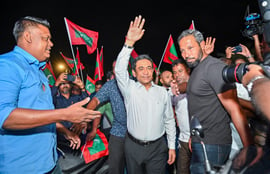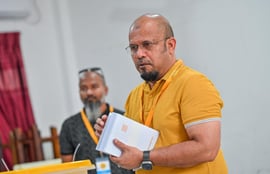President of the Commission on Investigation of Murders and Enforced Disappearances, Husnu al-Suood, on Monday, stated that the commission completed identifying the culprits behind the abduction of Ahmed Rilwan and the murders of Dr Afrasheem Ali and Yamin Rasheed
Speaking on air during a program broadcasted by local media outlet Raajje TV, Suood further revealed that the commission also uncovered the motives of those responsible for the crimes. Highlighting the failure of the police-led investigation to yield this information thus far, Suood described the commission's progress as its crowning achievement.
Adding that measures to bring the culprits to justice would be taken prior to the publication of the murder commission's investigative report, he guaranteed that justice would be achieved for the families of Afrasheem, Rilwan and Yamin.
The former Attorney General commented that he did not believe that the previous administration had exerted sufficient effort to solve the three high profile cases, which were discovered to be linked during the previous investigations.
In response to the TV presenters inquiry into whether the cases were stalled as a result of exerting undue influence, Suood stated that additional investigations must be conducted in order to ascertain reasons behind the delay.
Suood's announcement marks the first time a government body confirmed any knowledge of the culprit and motives behind the three high-profile cases. Criticism received by Maldivian citizens over withholding crucial information regarding grave crimes is known to be severe.
Difficulties faced by the Commission on Investigation of Murders and Enforced Disappearances
Despite announcing his intention to conclude 24 investigations by the end of April on December 30, 2018, Suood presented several reasons justifying the possibility of delays in acquiring the needful.
He highlighted that the bill granting rights to presidential commissions is yet to be passed by the parliament. Suood revealed that his initial expectation of the bill being passed and ratified during the month of January did not come to fruition due to a number of factors.
Only bodies defined as investigative authorities under the Criminal Procedure Code, implemented in September 2017, are granted the right to investigate a criminal offence and forward cases to the Prosecutor General's Office.
At present, the Commission on Investigation of Murders and Enforced Disappearances conducts its investigations in co-operation with the Maldives Police Service. However, he stated that certain procedural difficulties have caused delays.
Suood stated that the Prosecutor General's Office, despite not currently participating in the investigation, would begin collaborating with the commission in the future.
He also reiterated the commission's final aim to apprehend and punish guilty individuals, which he stated could only be achieved when it attained legal authority as defined under the Criminal Procedure Code.
"We could release an ordinary report detailing our observations. However, this would not fulfil our goals. Instead, it will provide culprits with a chance to hide the evidence."
Religious scholar and Ungoofaaru member, Afrasheem was brutally stabbed in 2012. The two individuals charged with hiding Rilwan following his abduction in August 2014 were cleared of all charges while the legal proceedings of the seven people accused in the brutal murder of the prominent blogger Yamin on April 23, 2017, is currently underway.
President Ibrahim Mohamed Solih formed the Presidential Commission on Investigation of Murders and Enforced Disappearances on November 17, 2018. It holds the same powers as investigative authorities and is mandated to solve cold cases dating from January 1, 2012, onwards.
The commission is probing a total of 24 cold cases, with the aid of foreign experts.
